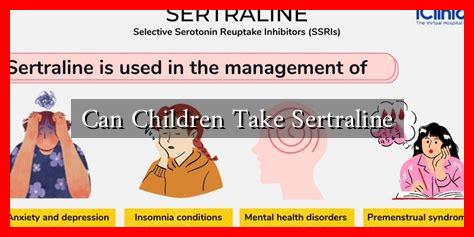-
Table of Contents
Can Children Take Sertraline?
Sertraline, a selective serotonin reuptake inhibitor (SSRI), is commonly prescribed to treat various mental health conditions, including depression, anxiety disorders, and obsessive-compulsive disorder (OCD). While it is widely used in adults, the question of whether children can safely take sertraline is a topic of significant interest and concern among parents, healthcare providers, and researchers. This article explores the use of sertraline in children, its efficacy, potential side effects, and important considerations for parents.
Understanding Sertraline
Sertraline works by increasing the levels of serotonin in the brain, a neurotransmitter that plays a crucial role in mood regulation. By enhancing serotonin activity, sertraline can help alleviate symptoms of depression and anxiety. It is important to note that while sertraline is effective for many, it is not suitable for everyone.
When is Sertraline Prescribed for Children?
Sertraline is typically prescribed for children and adolescents who exhibit symptoms of:
- Major depressive disorder
- Generalized anxiety disorder
- Obsessive-compulsive disorder (OCD)
- Post-traumatic stress disorder (PTSD)
- Social anxiety disorder
According to the American Academy of Child and Adolescent Psychiatry, SSRIs like sertraline can be effective in treating these conditions in children, particularly when symptoms are severe or persistent.
Efficacy of Sertraline in Children
Research indicates that sertraline can be effective for children and adolescents. A study published in the Journal of the American Academy of Child & Adolescent Psychiatry found that sertraline significantly reduced symptoms of OCD in children aged 6 to 17. Another study highlighted that sertraline was effective in treating anxiety disorders in children, with a response rate of approximately 60%.
Potential Side Effects
While sertraline can be beneficial, it is essential to consider the potential side effects, which may include:
- Nausea
- Diarrhea
- Insomnia
- Increased sweating
- Changes in appetite
- Suicidal thoughts (especially in younger patients)
Parents should closely monitor their children for any adverse reactions, particularly during the initial weeks of treatment or when the dosage is adjusted. The FDA has issued a black box warning regarding the increased risk of suicidal thoughts and behaviors in children and adolescents taking antidepressants.
Considerations for Parents
Before starting sertraline, parents should consider the following:
- Consult with a qualified mental health professional to assess the child’s condition.
- Discuss the potential benefits and risks of sertraline with the healthcare provider.
- Consider therapy options, such as cognitive-behavioral therapy (CBT), which can be effective alone or in conjunction with medication.
- Monitor the child’s mood and behavior closely after starting the medication.
It is crucial for parents to maintain open communication with their child and healthcare provider throughout the treatment process.
Conclusion
Sertraline can be an effective treatment option for children suffering from various mental health conditions, including depression and anxiety. However, it is essential for parents to weigh the benefits against the potential risks and side effects. Close monitoring and open communication with healthcare providers are vital to ensure the safety and well-being of the child. As with any medication, the decision to use sertraline should be made collaboratively between parents, children, and healthcare professionals, ensuring that the child’s best interests are always prioritized.
For more information on mental health treatments for children, you can visit the National Alliance on Mental Illness (NAMI).


